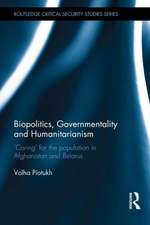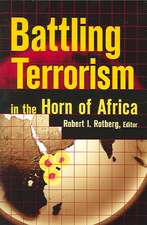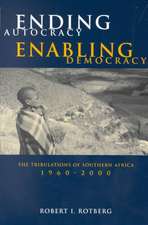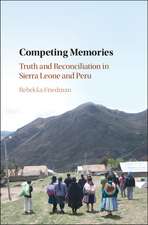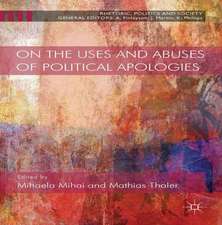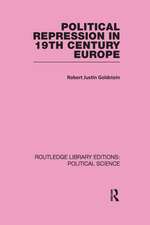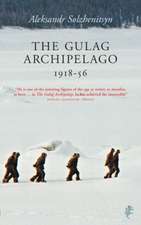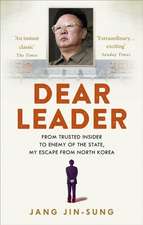Burma: Prospects for a Democratic Future
Editat de Robert I. Rotbergen Limba Engleză Paperback – iun 1998
This book examines the origins and consequences of Burma's current policies from military, political, social, and economic perspectives. It analyzes the Asian decision to "constructively engage" Burma, especially in economic affairs, versus the position of the United States and many other Western countries to treat Burma as a pariah. Other chapters focus on the drug trade (Burma produces more than 60 percent of the world's heroin), the growing role of China as Burma's military and economic "big brother," political culture and democratic traditions, the unsustainable nature of current economic growth, shortfalls in education and health systems, and Burma's potential for foreign investment.
Preț: 217.90 lei
Nou
Puncte Express: 327
Preț estimativ în valută:
41.70€ • 43.64$ • 34.70£
41.70€ • 43.64$ • 34.70£
Carte tipărită la comandă
Livrare economică 31 martie-14 aprilie
Preluare comenzi: 021 569.72.76
Specificații
ISBN-13: 9780815775812
ISBN-10: 0815775814
Pagini: 308
Dimensiuni: 152 x 229 x 22 mm
Greutate: 0.44 kg
Ediția:2
Editura: Brookings Institution Press
Colecția Brookings Institution Press
Locul publicării:United States
ISBN-10: 0815775814
Pagini: 308
Dimensiuni: 152 x 229 x 22 mm
Greutate: 0.44 kg
Ediția:2
Editura: Brookings Institution Press
Colecția Brookings Institution Press
Locul publicării:United States
Notă biografică
Robert I. Rotberg is director of the Program on Intrastate Conflict, Conflict Prevention, and Conflict Resolution at Harvard University's John F. Kennedy School of Government, and president of the World Peace Foundation. Rotberg is the author or editor of numerous books, including State Failure and State Weakness in a Time of Terror (Brookings/WPF, 2003).
Descriere
This book examines the origins and consequences of Burma's current policies from military, political, social, and economic perspectives. It analyzes the Asian decision to "constructively engage" Burma, especially in economic affairs, versus the position of the United States and many other Western countries to treat Burma as a pariah. Other chapters focus on the drug trade (Burma produces more than 60 percent of the world's heroin), the growing role of China as Burma's military and economic "big brother," political culture and democratic traditions, the unsustainable nature of current economic growth, shortfalls in education and health systems, and Burma's potential for foreign investment.


